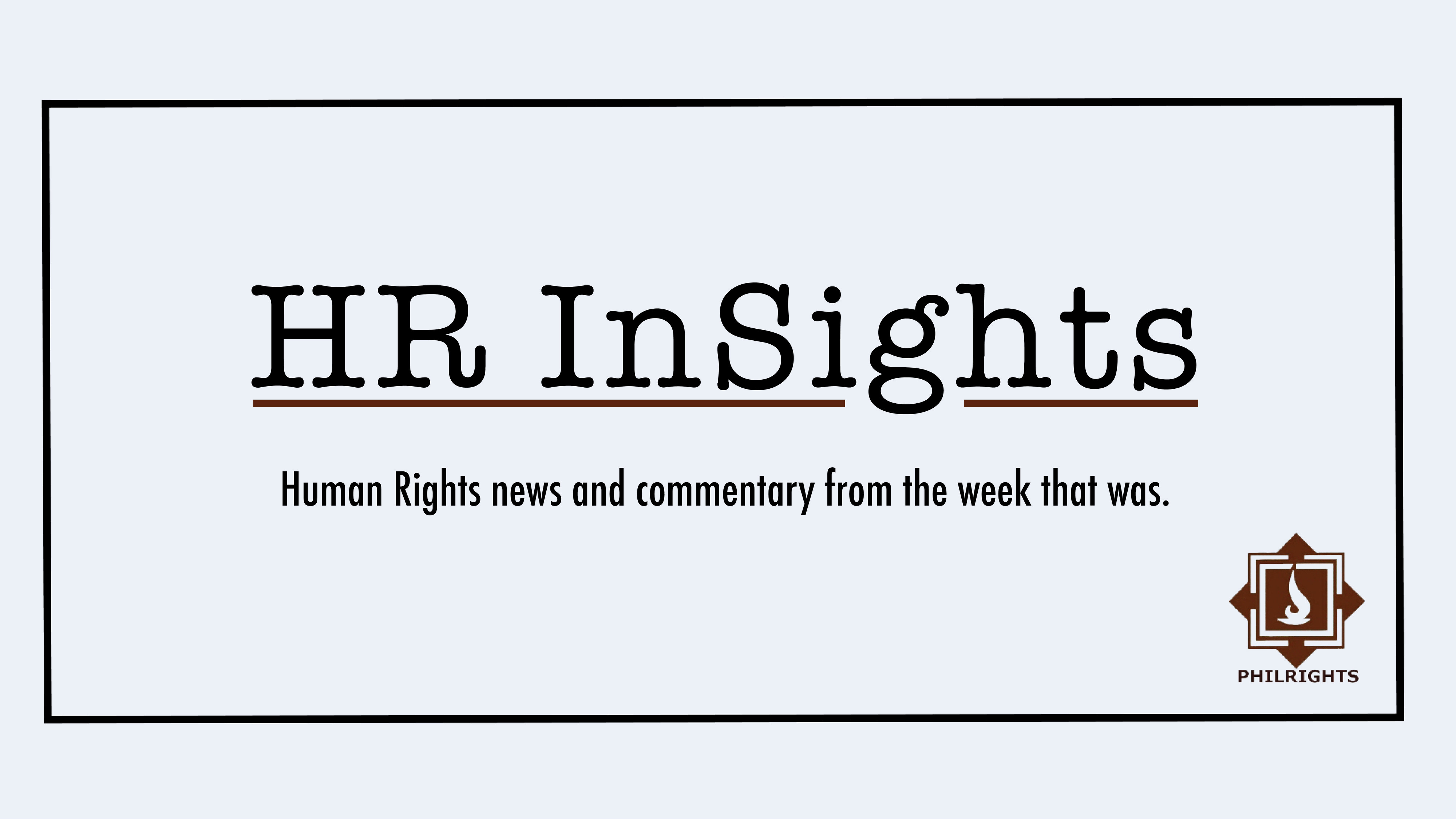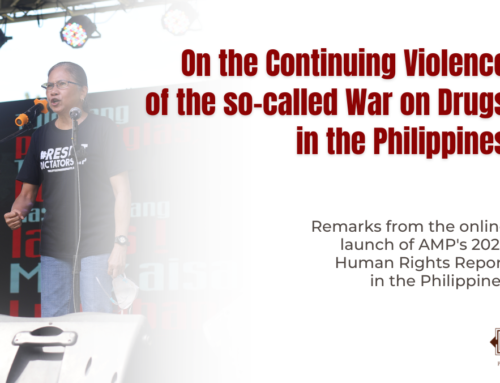By PhilRights Staff
Welcome to HR Insights, a weekly roundup of human rights news in the Philippines. This week…
PNP issues new Oplan Tokhang guidelines
In what appears to be an acknowledgment of rampant abuses in the agency’s handling of the so-called war on drugs, the Philippine National Police last week issued new guidelines in its third try as the lead enforcer of the government’s anti-illegal drugs campaign.
Rappler describes the command memorandum circular (CMC) as “read[ing] like an instruction manual, leaving no space for possible abuse.” Rappler also breaks down the guidelines into seven steps, following the memo’s division of the project into three phases: Pre-Tokhang, During Tokhang, and Post-Tokhang:
Pre-Tokhang:
- Creation, updating of the drug watchlist
- Creation and training of Tokhang teams
- Pre-deployment preparations
During Tokhang:
- Knock then plead
- Documentation and referrals
Post-Tokhang:
- After Activity Report, evaluation
- Accountability
A separate Rappler report highlighted that the new guidelines specify that Tokhang operations will need the presence of representatives from Anti-Drug Abuse Councils (ADAC), the PNP Human Rights Affairs Office (HRAO), human rights organizations, as well as someone from the religious sector or a prominent member of the community, plus invitations may also be extended to the media to cover operations.
Despite these gestures toward openness, PNP Chief Ronaldo dela Rosa already dashed any expectations for a “foolproof anti-drug campaign that would be bloodless.” His reasoning: the police are “not dealing with people who are in their proper state of mind.”
Kian killers charged with murder
Arnel Oares, Jeremias Pereda and Jerwin Cruz. These are the three police officers, along with an informant, charged with murder in the August 2017 killing of 17-year-old Kian Loyd delos Santos.
The New York Times reports that the Department of Justice (DOJ) cited witnesses’ testimony saying that Kian was “dragged away and shot at close range,” adding that forensic evidence showed, “in “an indisputable conclusion,” that Mr. delos Santos had been shot while in a “somewhat kneeling” or “fetal” position.”
Not charged are thirteen others involved in that fateful night’s drug sweep, as well as the local police commander because the DOJ could not find evidence that he directly authorized the killing.
To date, Kian’s case has been one of the few instances of prosecution against police officers who committed human rights violations in the government’s campaign against illegal drugs. As Human Rights Watch notes, “The handful of previous prosecutions of police personnel implicated in the thousands of alleged drug war killings have not resulted in convictions,” adding that “Accountability for drug war killings has been hobbled by the refusal of the PNP and the Philippine government to allow for an independent inquiry of those deaths.”
PH ranked 88th in the 2018 Rule of Law Index, highest fall among 113 countries
The Guardian reports that the Rule of Law Index, a survey of over 110,000 households and 3,000 experts worldwide on their experiences of legal systems, has ranked the Philippines 88th among 113 countries, a steep 18-place drop from 2017, which follows a drop of nine places in 2016.
Published by the World Justice Project (WJP), the survey reveals a worldwide trend toward authoritarian and nationalistic policies and away from compliance with international rights obligations. The Guardian report quotes the WJP’s founder, William H. Neukom, saying, “We are witnessing a global deterioration in fundamental aspects of the rule of law.”
You can download the full report here.
Must Read: The Economist thinks Cha-Cha “may prove perilous”
An article published on February 3 in The Economist raises questions about the motives and justifications for the aggressive push for charter change by the Duterte administration.
In exploring the appeal of charter change and a shift towards federalism for the Philippines, The Economist acknowledges a widely held belief, especially in the countryside: “Power—political and economic—is now centralised in “imperial” Manila, the capital. Almost every function of government, from education to the police, is administered from the metropolis, despite the country’s mosaic of peoples and languages.”
Yet, the piece raises doubts about the positive consequences of the proposed changes, mainly federalism and its possible impact, asking “what is to stop families who already dominate politics and business in their localities from further entrenching their power in the newly created states—Mr. Duterte’s included?”





